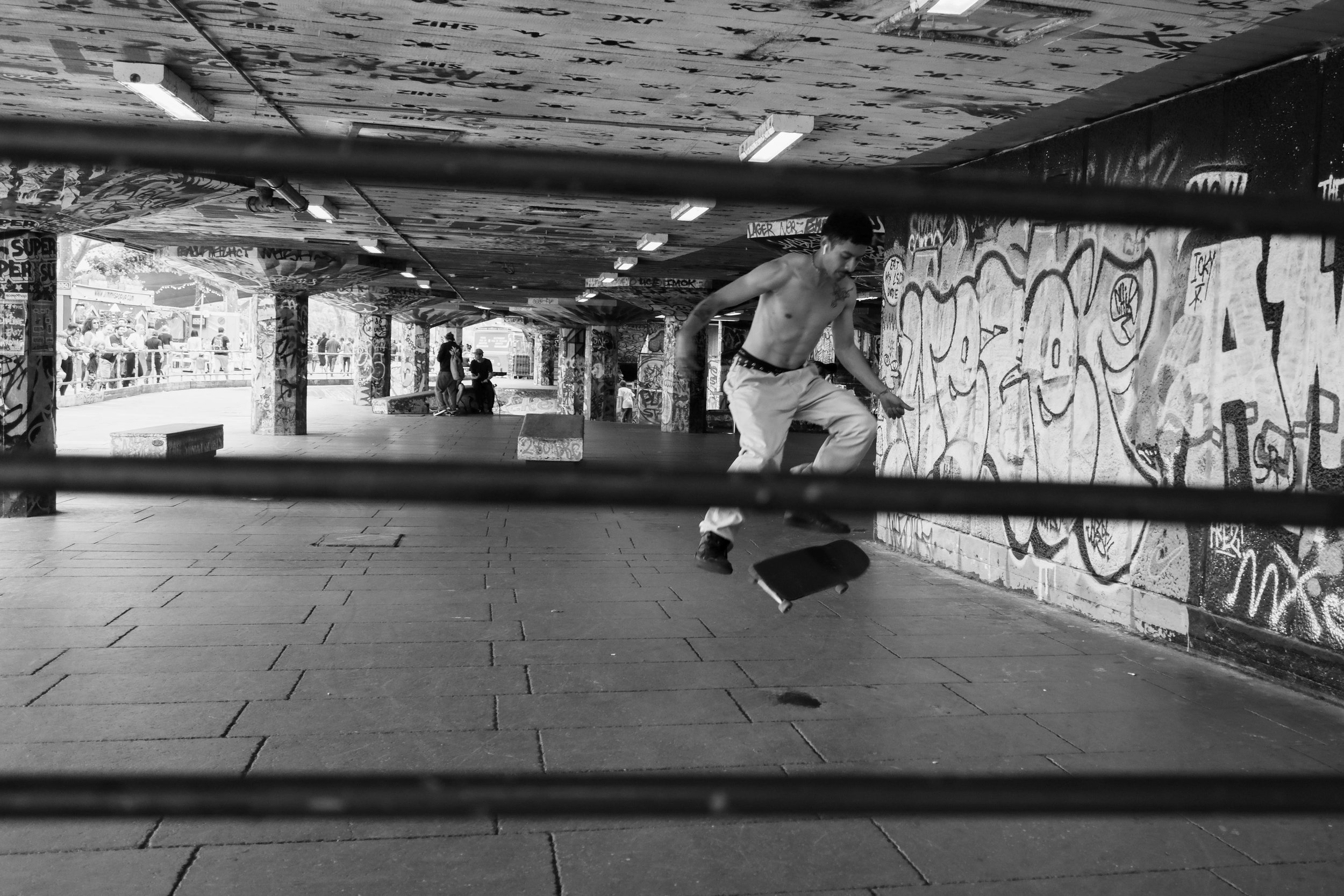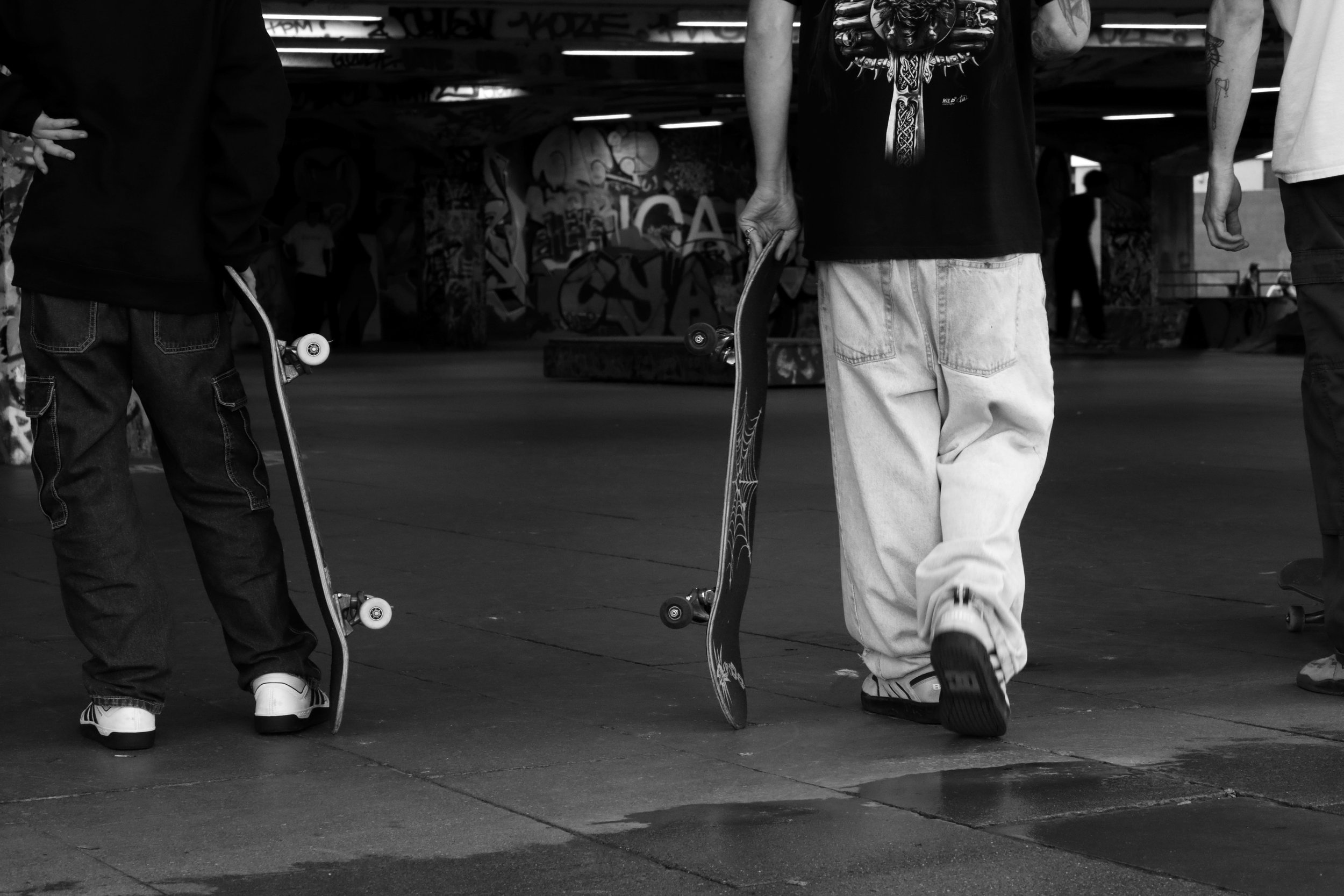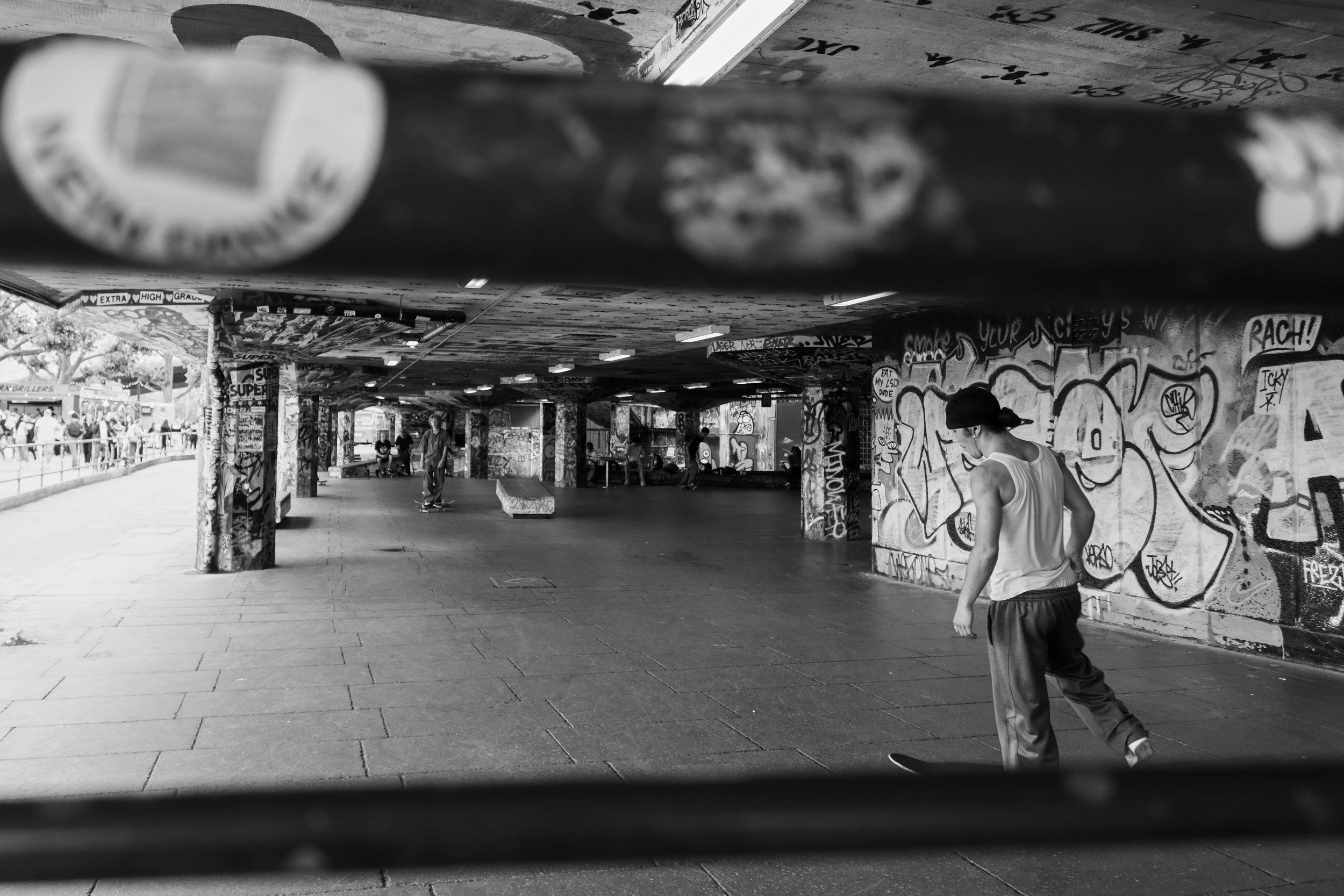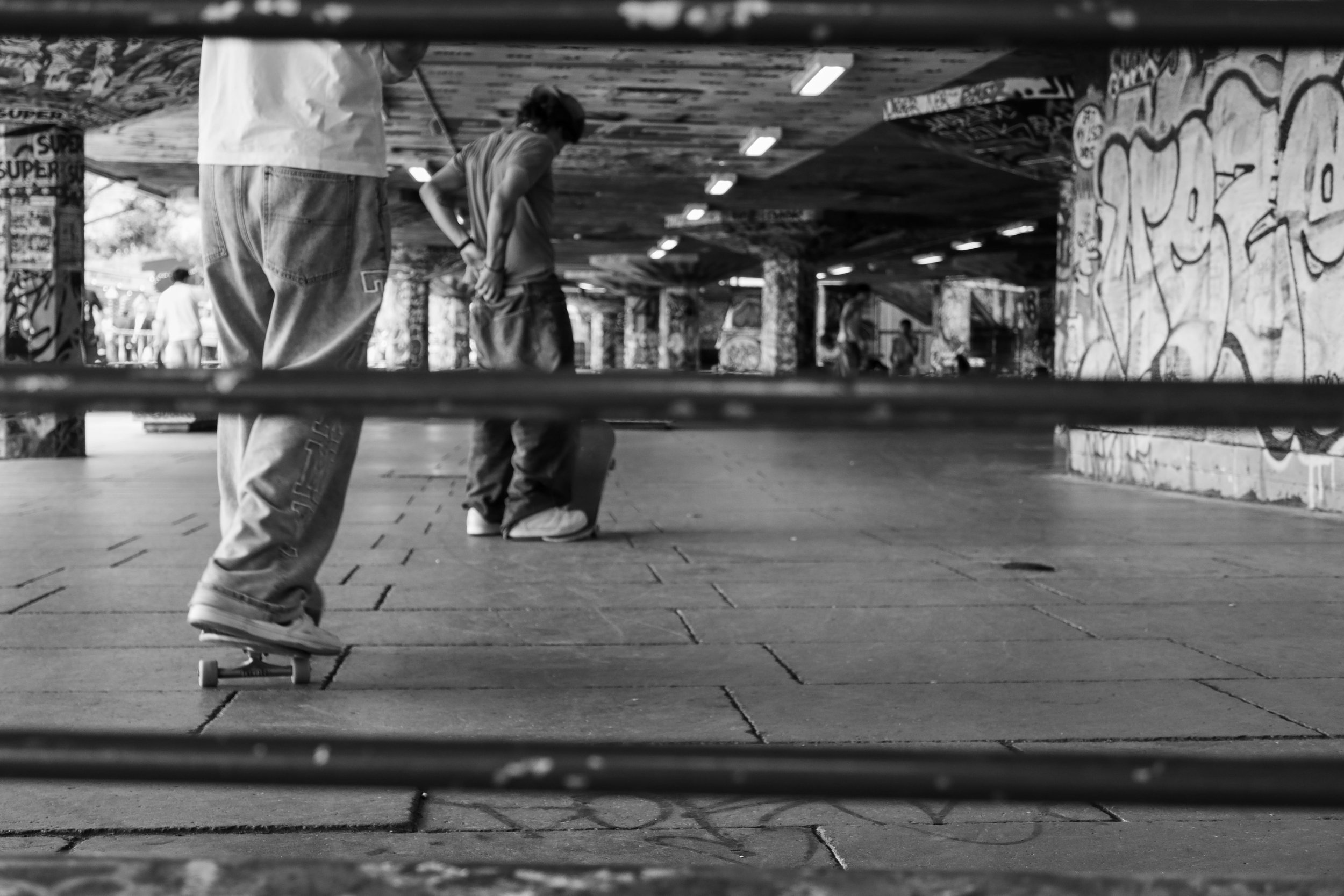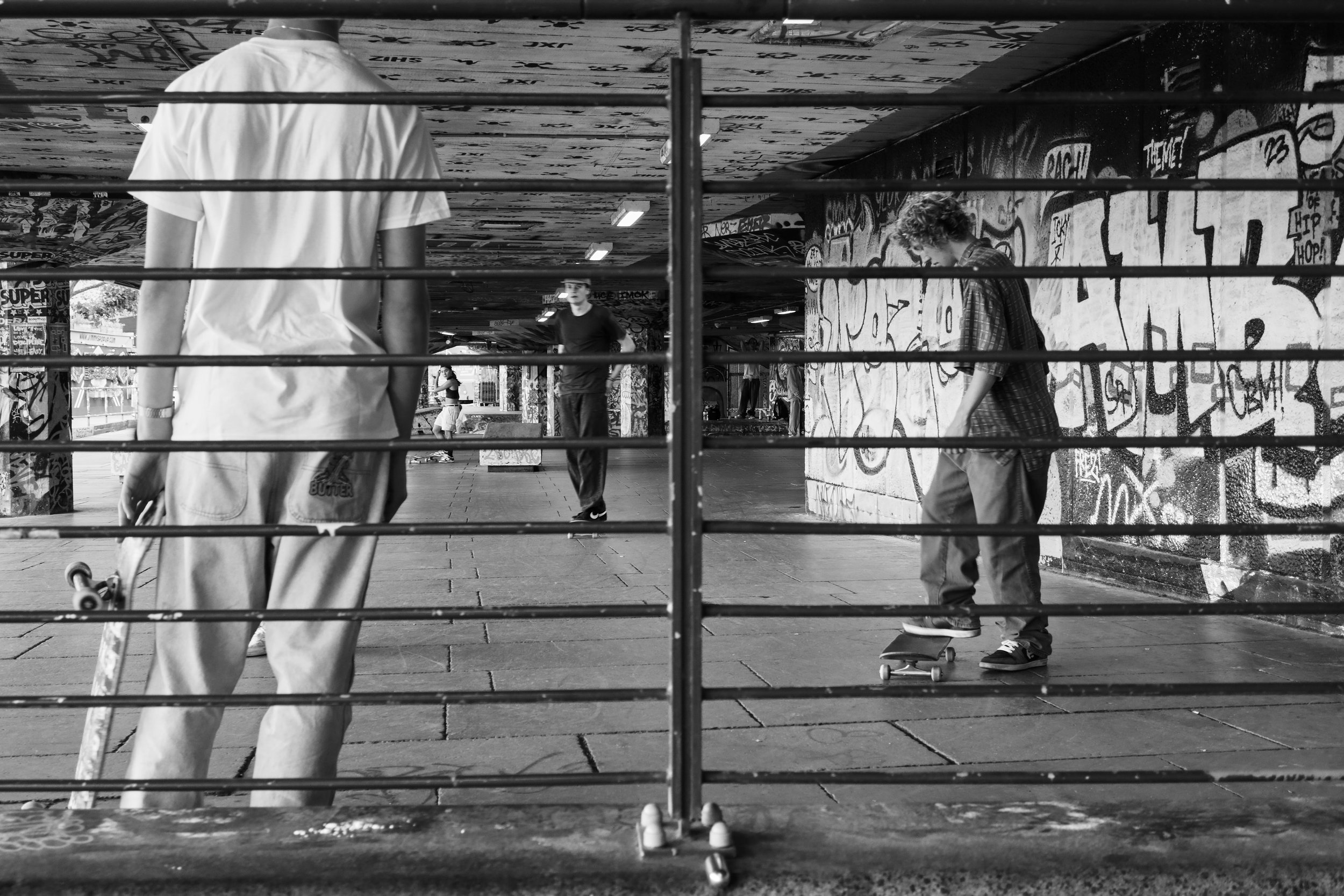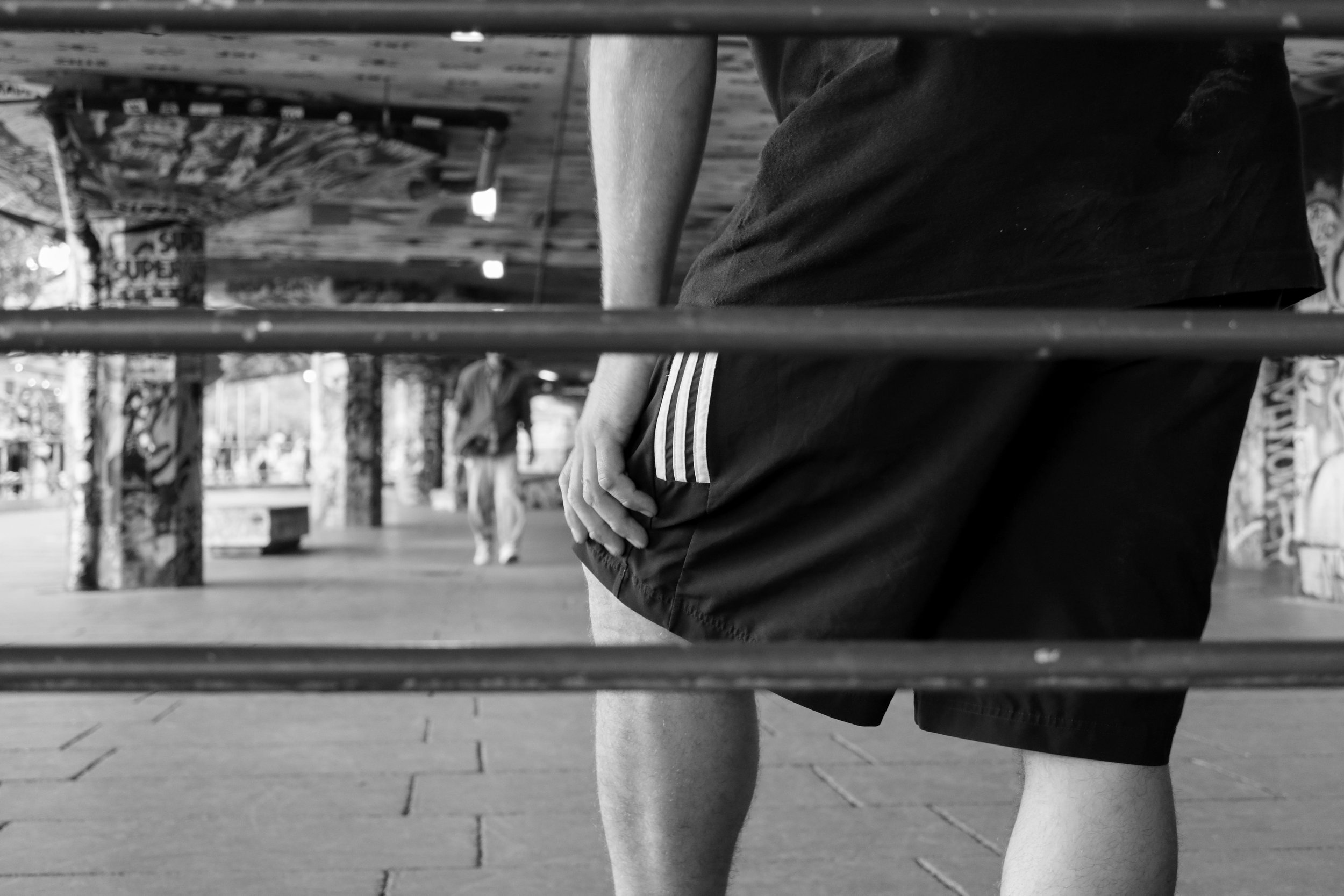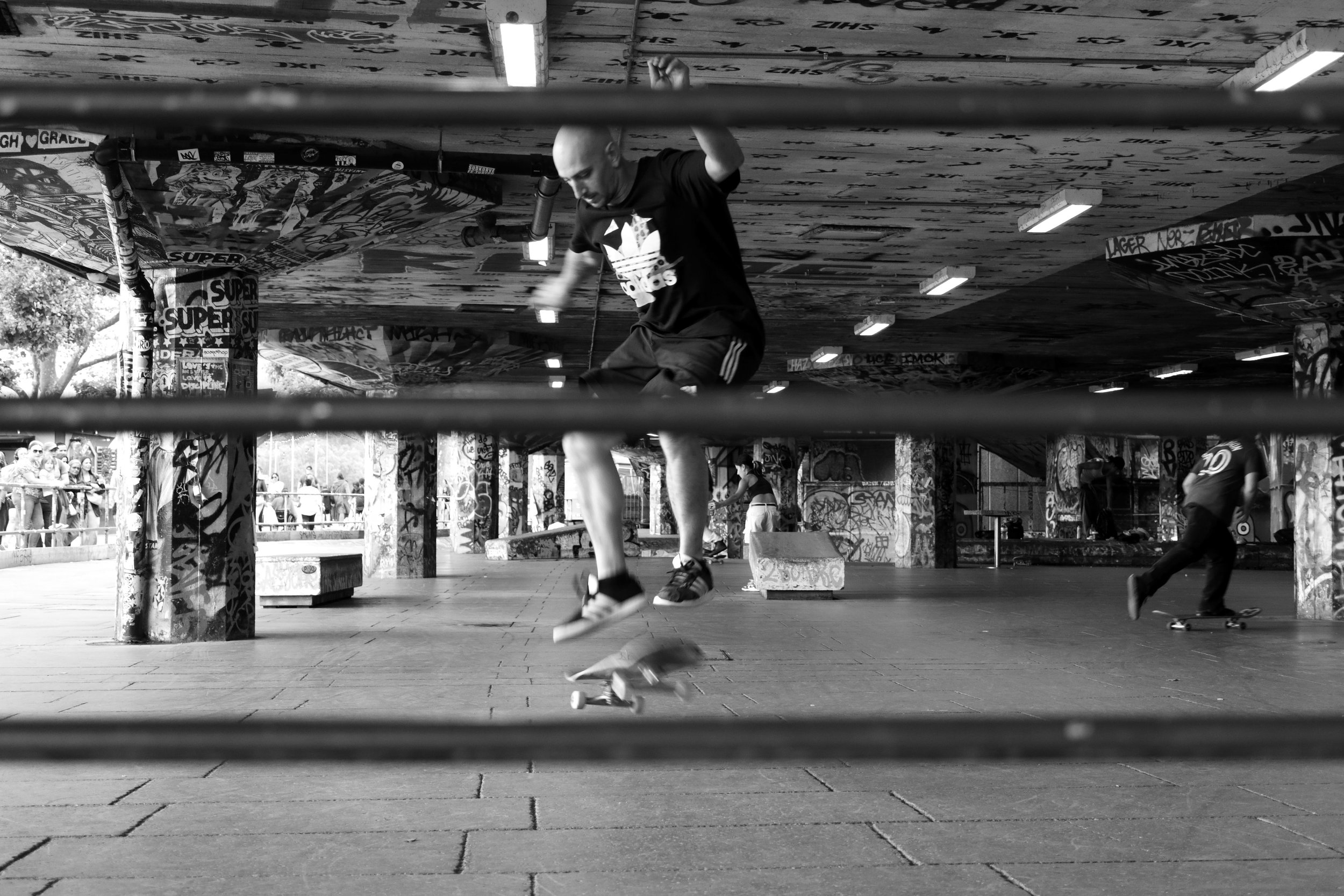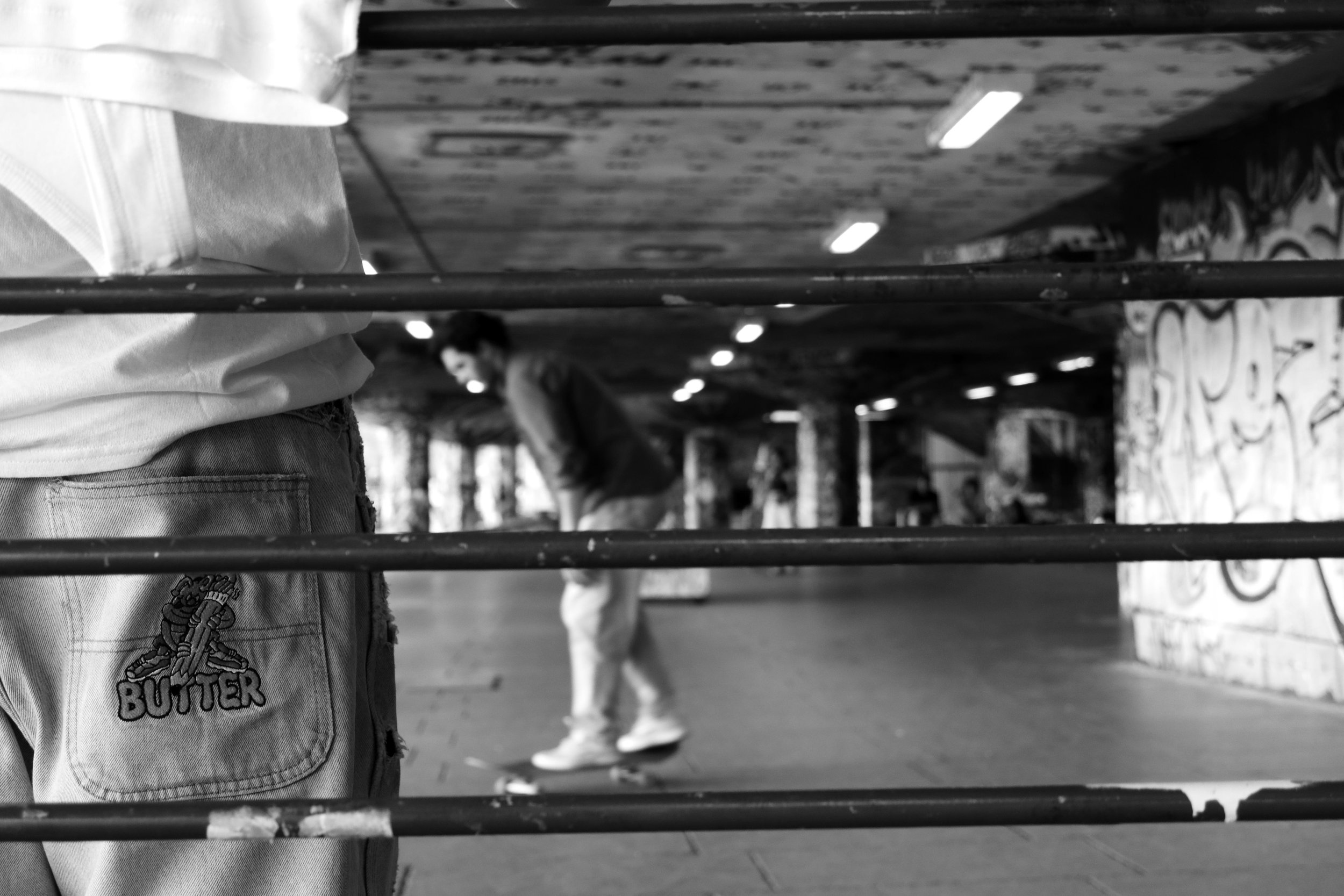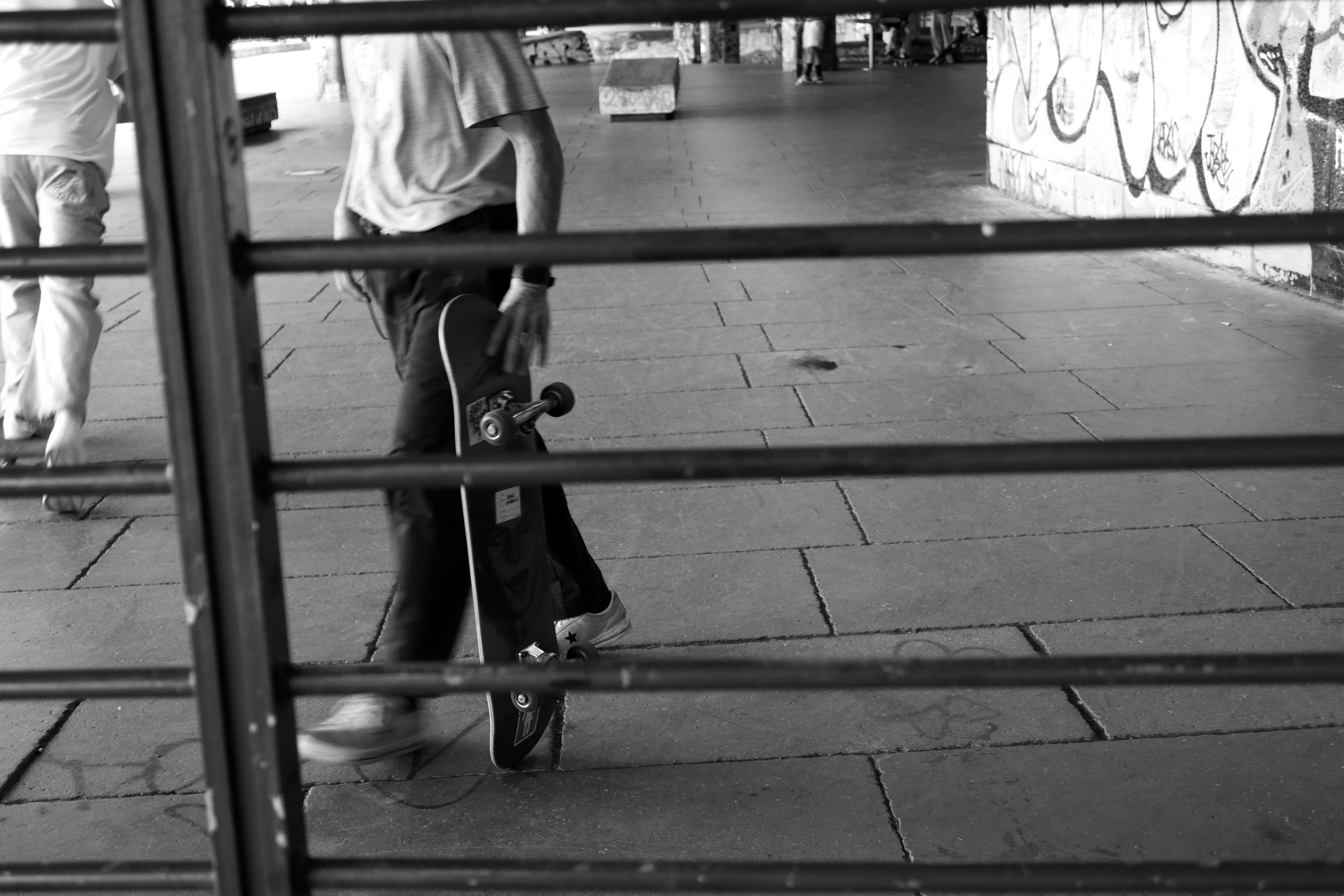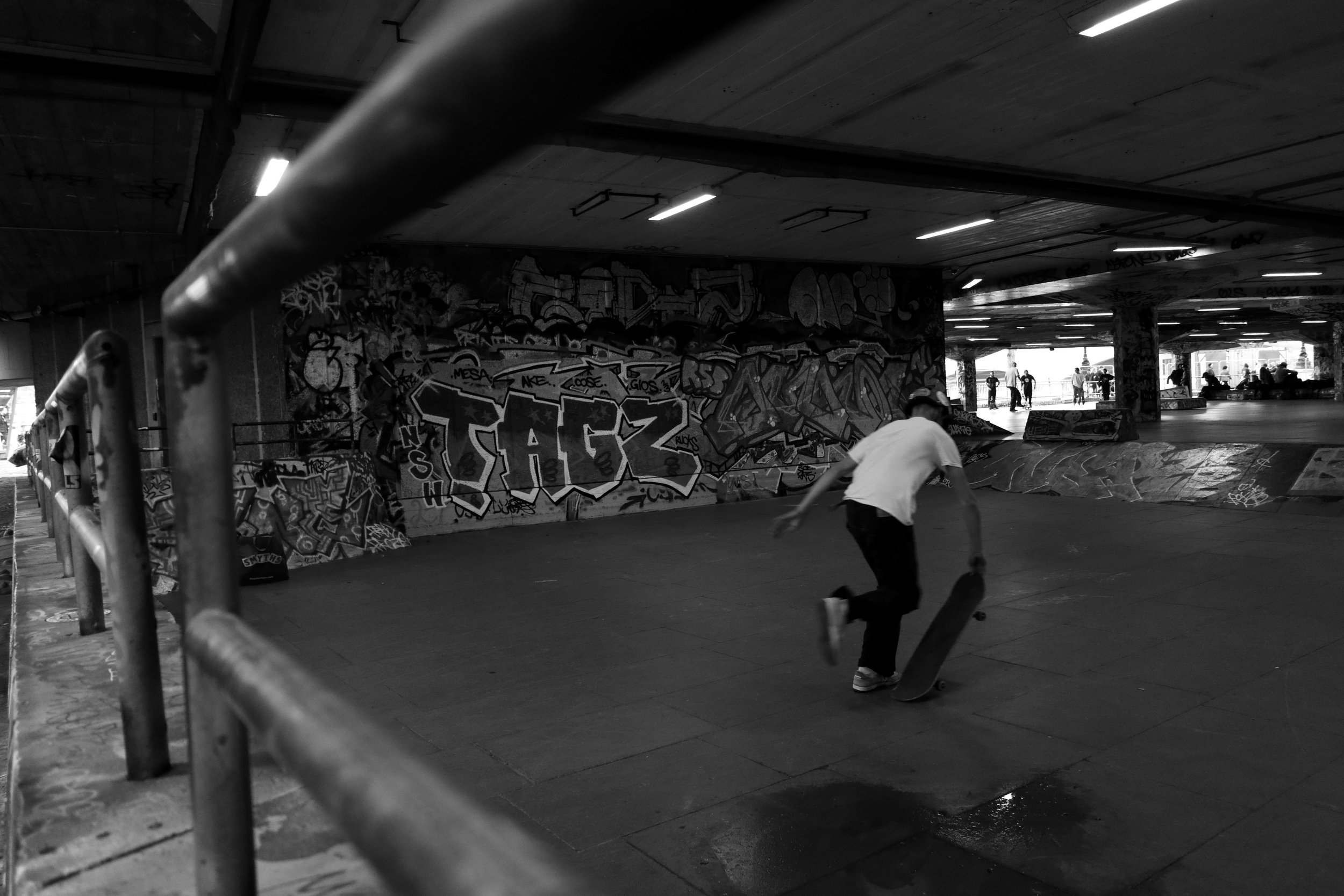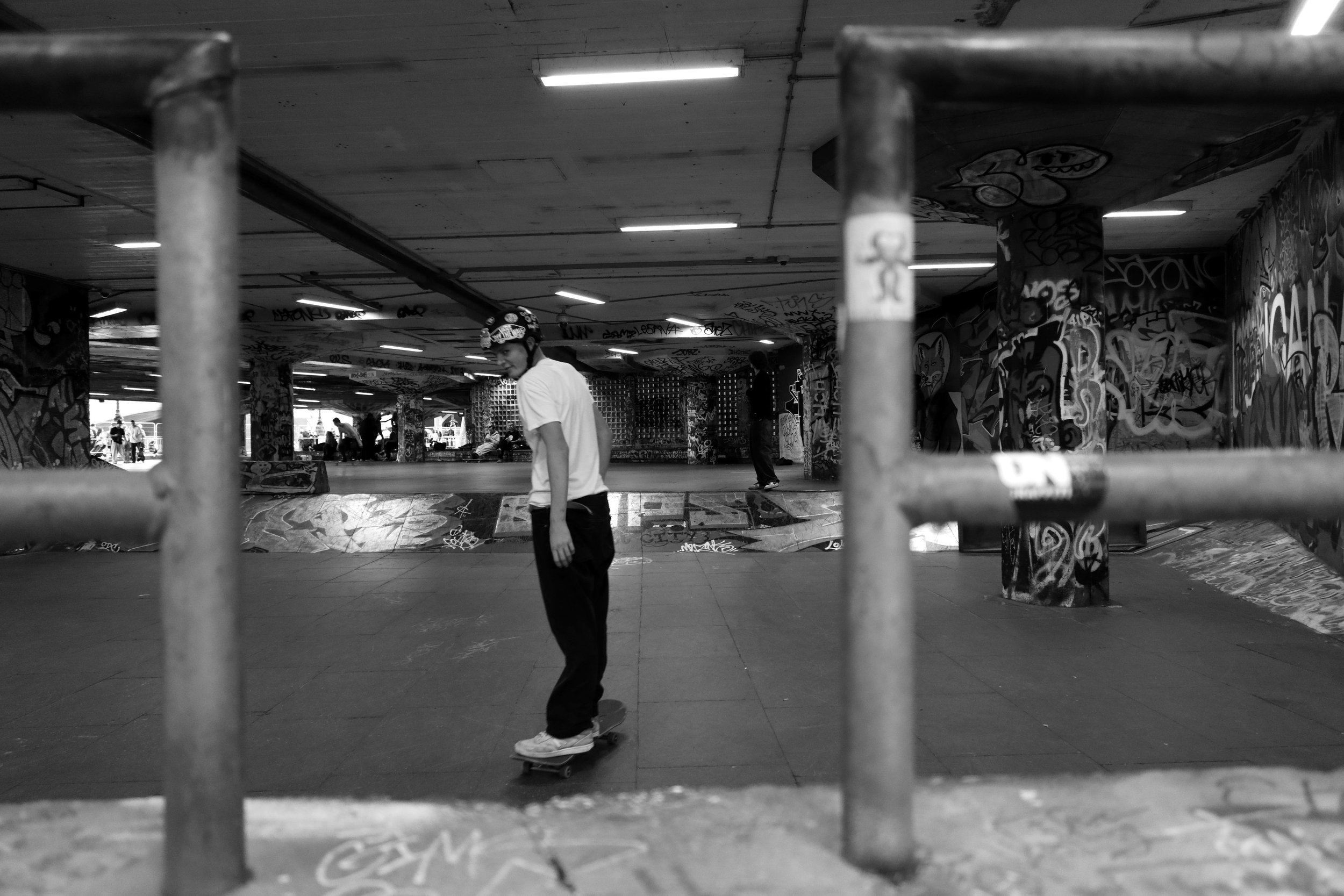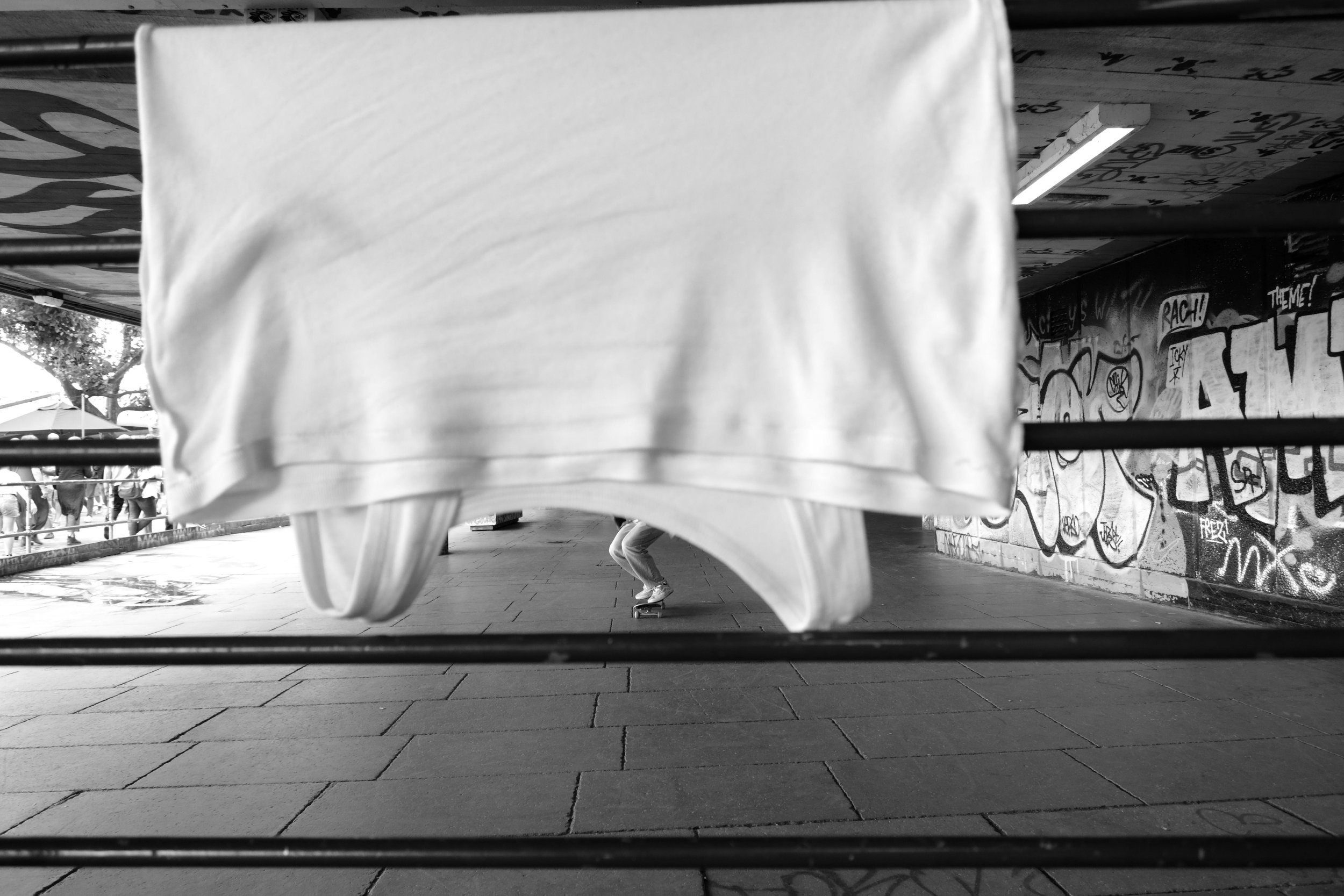Photography Blog
Personal work, updates, thoughts, opinions and the occasional tutorials and tips…
Undercroft Skate Park
Skaters at the Undercroft at London's Southbank.
I've been coming to this area for years but I'm still fascinated by the energy of the place every time I visit. There's always something new that catches my eye, and I'm drawn to the many photographic opportunities the place offers.
It's quite a gritty, urban environment that appears slightly unapproachable, but it seems that anyone who approaches with an open mind and a sympathetic eye is welcomed without judgement. There are often people smoking weed in the shadows but there's never any sense of threat or danger. Indeed, there are often young kids learning to skate in amongst the more seasoned skaters who seem to readily welcome the new generation into their tribe.
